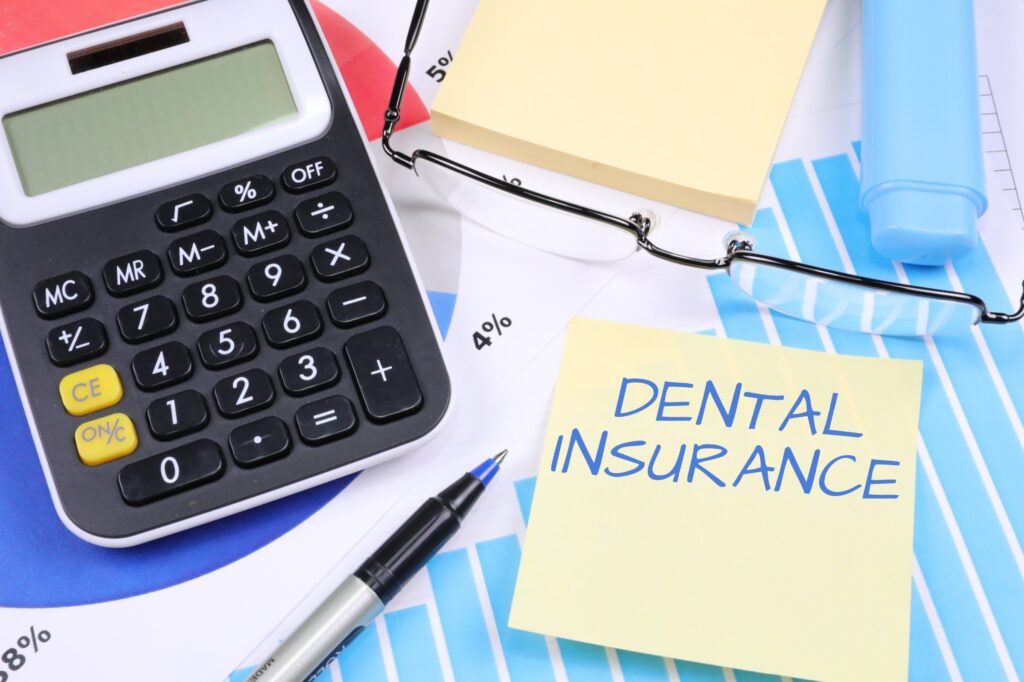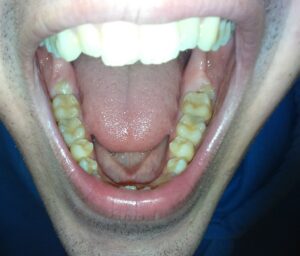Do you have dental insurance? Or do you wish you had dental insurance? It can be a very confusing subject, and it’s a bit different than medical insurance. So, it’s important to understand at least a little bit about the difference.
As of 2020, over 260 million Americans (nearly 80% of the population) had dental insurance plans. Over 90% of Americans with private coverage get the benefits through their employer or a group program. Just under 9% of Americans buy private dental plans from the market. Less than 1% get dental benefits as part of their medical insurance plan.
Dental insurance has an annual maximum which hasn’t changed in 30+ years
First of all, dental insurance is really more of a dental benefit. It pays a certain amount every year. Now, most people are surprised to find out that the annual maximum that a plan will pay, which may be $1,200, $1,500, $1,750, or maybe $2,000 a year towards your care, is the same amount that was allowed 30 plus years ago. They have not raised that annual maximum much at all. It used to be that dental insurance as a benefit would actually cover a fair amount of dentistry. Today, it really doesn’t cover that much if you need major dental care. Now, if you need just preventive services, it can be very useful. Just know that there is an annual maximum which is different than a medical policy which may pay out tens of thousands of dollars, if needed.
Dental insurance only covers a percentage of the total cost of your dental care
Now, the other thing about dental insurance is that it tends to cover a percentage of your care, and that’s going to be different for different services. For example, if you need a cleaning exam and X-rays, your policy may cover 80 percent of the cost or it may cover 100 percent of the cost. That’s a typical range. If you need fillings, for example, maybe it’s 70 percent. It could be less. If you need major services like a crown, root canal, or implants, maybe 50 percent of the total cost. But again, it would be a percentage up to that maximum amount that we mentioned earlier. You have to really understand the nuances of these plans.
You may not get immediate dental care
The other thing that you can find with dental insurance plans is that they may have a waiting period for major services. So, if you need a crown, then you may have to go past a waiting period, let’s say, it’s six months. That’s not as common with employer sponsored plans, but it is more common with the independent plans. Those are the plans that you can go out on the market and buy yourself. These are general guidelines. There are some significant differences between the plans. It’s good for you to know them. Because if you’re paying a premium, let’s say you’re paying $60 a month, $720 a year, but the benefits are only $1,500 total if you use the whole thing, then you may find if you just need cleanings, an exam and checkup, and maybe an occasional filling, that you’re better off to self-insure in a sense, which is really the ability to save that money a little bit at a time and pay towards your dental care.
These are just a few thoughts for you to think about when it comes to dental insurance and how it works.
Most dentists accept dental insurance, but not all of them do, or some of them are contracted with certain plans and others are not. It’s important that when you choose a dentist that you make sure that that is very clear, so there isn’t any frustration or misunderstanding. It’s also worth remembering that insurance plans will usually not cover cosmetic dentistry treatments.
Finding a dentist nearby
If you need a dentist, we’re happy to help. Express Dentist has a network of trusted dentists around the country, and most of them will accept dental benefits. You can find out if they will accept your dental insurance plan and get the care that you need and deserve.
This was a little information about dental insurance. If you have the benefits, it’s worth finding out how to use them wisely. If you don’t have a dental insurance plan, you can do a little research and see what would be the best way forward, so you can get the care that you need. You should also look into dental membership plans which work on a subscription model for dental care. All the best to you and your oral health!
About the author

Dr. Greg Grillo
Dr. Greg Grillo DDS studied at the University of Washington where he received a bachelors degree with Honors and later attended dental school on the same campus. Following school Dr. Greg served in the United States Navy as a dental officer. During this time he received advanced training in specialty areas of dentistry while also treating families of members of the military.
As well as sharing valuable information on dentistry and oral health, Dr. Greg remains a practicing dentist to this day. He works with families in the Okanogan Valley where he lives with his wife and three children.
- Dr. Greg Grillo#molongui-disabled-link
- Dr. Greg Grillo#molongui-disabled-link
- Dr. Greg Grillo#molongui-disabled-link
- Dr. Greg Grillo#molongui-disabled-link





